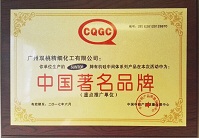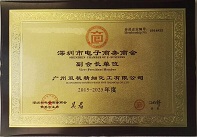
![]() E-mail: admin@gz-chemical.com
E-mail: admin@gz-chemical.com
Email us,best price and silane solutions for you!
Tel:+86 (20) 29035969

![]() E-mail: admin@gz-chemical.com
E-mail: admin@gz-chemical.com
Email us,best price and silane solutions for you!
Tel:+86 (20) 29035969


Waste streams from industry and agriculture could be used for the production of coal that can
serve as a cheap adsorbent for water purification. In her thesis at the Industrial Doctoral
School, Mirva Niinipuu demonstrates that the capacity of carbon materials to separate organic
water pollution was generally low, but that they have potential for improvement. She defended
her thesis at Ume? University on Friday, May 24.
In order to conserve our water resources and prevent the spread of environmental pollution,
we must have access to efficient water purification. Adsorption using activated carbon is a
common water purification technique, but the high cost of conventional active carbon limits the
use of this technology.
At the same time, a large number of waste streams are generated—for example by the food
industry, agriculture, and industrial processes—that are currently not being used optimally. In
addition to generating adsorbents for water purification, the production of coal from these
residues would also help to reduce the cost of handling and disposing of waste. This would be
both economically and environmentally advantageous.
The purpose of Mirva Niinipuu's doctoral thesis, which was carried out at the Industrial
Doctoral School at Ume? University, was to investigate the ability of charred residues to
separate environmentally hazardous organic and inorganic pollutants from industrial water.
The materials she studied were coal from tomato and olive press waste, rice husks, horse
manure, municipal wastewater sludge, and biosludge and fibre sludge from the pulp and paper
industry. She evaluated the effects of charring temperature and the type of starting material on
the surface properties of the generated coals and their capacity to separate water pollutants,
thereby clarifying which surface properties are important for adsorption. In addition, she
investigated various chemical activations of carbon materials in order to improve their function
as water purification adsorbents.
Guangzhou Double Peach Fine Chemical Co.,Ltd
Address: No 3401 Huangpu East Road, Huangpu District, Guangzhou, China
Tel:+86 (20) 29035969 Fax:+86(20)29035979
Tel/Wechat/Whatsapp:0086 13826126978 admin@gz-chemical.com